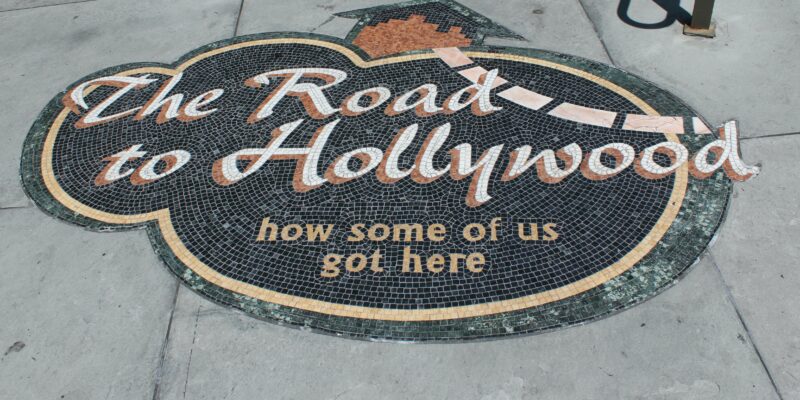The Hollywood entertainment industry is an enigma shrouded in mystery, and its secrets often buried deep below the surface. From behind-the-scenes scandals to industry-wide conspiracies, there is no shortage of stories waiting to be told. In this article, we delve into the untold stories of Hollywood, revealing the secrets that have remained hidden for far too long.
1. The Contract System
During the golden age of Hollywood, the major studios relied on the contract system to control their roster of actors. This system bound actors to their respective studios, forcing them to work exclusively for one film company for years, even if they wanted to leave. The studios would use this power to control actors’ careers, determining what types of roles they would play and the level of fame they would achieve.
The studios also enforced strict moral clauses in their contracts, requiring their talent to lead lives that reflected well on the company’s image. The contract system was abolished in the 1960s, but its impact on Hollywood culture can still be seen today. I think these are the weirdest secrets of hollywood that we didn’t knew before
2. Blacklisting
In the 1940s and 50s, Hollywood was gripped by the anti-communist fervor sweeping the nation. The House Un-American Activities Committee (HUAC) began investigating Hollywood for suspected communist sympathies, prompting many to testify against their colleagues in the industry. This led to a wave of blacklisting, where actors, writers, and directors suspected of communist ties were banned from working in Hollywood.
The blacklist effectively ruined careers and lives, destroying the creative landscape of Hollywood. Many of the accused were never able to clear their names, despite being innocent of any wrongdoing. The blacklist ended in the late 1950s, but its consequences can still be felt in the entertainment industry today.
3. Casting Couch
The casting couch has become synonymous with the entertainment industry, representing the dark side of Hollywood. The term refers to the practice of film producers and directors offering them roles in exchange for sexual favors. This systemic problem has been prevalent in Hollywood for decades, with many actors and actresses coming forward to share their experiences.
The casting couch has been used to exploit young and vulnerable actors who are desperate to break into the industry. It has also led to the perpetuation of gender inequality and sexual harassment in Hollywood. The #MeToo movement, which began in Hollywood, has brought attention to this issue and led to significant reforms in the industry.
4. The Studio System
The studio system was a business model employed by Hollywood studios during the first half of the 20th century. The model allowed major studios to control every aspect of the movie-making process, from scriptwriting to distribution. This meant that studios could churn out films quickly and efficiently, turning out dozens of movies each year.
However, the studio system also stifled creativity and forced filmmakers to conform to studio executives’ vision. This led to a homogenization of Hollywood movies, with films falling into predictable genres and tropes. The studio system began to crumble in the 1950s as the film industry became more competitive, but its impact on Hollywood culture can still be felt today.
5. Typecasting
Typecasting is a common practice in Hollywood where actors are repeatedly cast in similar roles based on their appearance, age, and acting style. This practice can significantly limit an actor’s career and prevent them from breaking out of their established niche. Many actors have struggled to break free from typecasting, leading to frustration and disappointment.
Typecasting can be both a blessing and a curse for actors. On the one hand, it can provide steady work in a specific type of role. On the other hand, it can prevent actors from exploring new opportunities and challenging themselves creatively.
6. Box Office Manipulation
Box office manipulation is a widespread problem in Hollywood where studios use tactics to inflate their films’ box office numbers artificially. These tactics can range from purchasing their own tickets to using shell companies to buy large blocks of tickets to give the appearance of a box office hit. Box office manipulation is done to create hype around a movie, attract investors, and increase profit margins.
However, box office manipulation can lead to false expectations and mislead audiences. It also perpetuates a culture where box office success is equated with quality, leading to more focus on money rather than artistic merit.
7. High-Pressure Work Environment
lastly, Working in the entertainment industry can be a high-pressure job, with long hours, tight deadlines, and intense competition. This has led to many common problems in Hollywood, including burnout, substance abuse, and mental health issues.
The high-pressure work environment in Hollywood can lead to a toxic culture, where bad behavior is tolerated and even encouraged. The industry has a reputation for being cutthroat and unforgiving, with little regard for the well-being of its talent.
Conclusion
The entertainment industry of hollywood is a complex and often dark world, filled with secrets and untold stories. The Hollywood of today has evolved from the Hollywood of the past, but many of its systemic problems remain. From the contract system to the casting couch, Hollywood’s secrets have a significant impact on the industry’s culture and the people who work within it. So, The entertainment industry must evaluate and reform these practices to create a more equitable and nurturing environment for the talent that fuels it.











